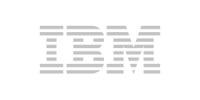Big data for ecommerce
Adaptive self-learning solutions based on large amounts of data and machine learning algorithms will throw out from the market hard-coded, expensive, first-principles-based, inflexible solutions in the next 6 years. AI provides solutions to problems in a non-linear way, much closer to production reality, and also significantly reduces the margin of human error.
THE FUTURE BELONGS TO DATA
Not using your data…
Is it really an option?
Big data for large ecommerce businesses
The term “big data” refers to operations on very large or complicated data sets, as well as situations where there is a need for very fast handling or processing of information, for example in large sales, when the number of transactions and customers goes in tens, hundreds of thousands or more. Using standard methods, a detailed analysis of such amounts of data is very difficult or simply impossible, possibly burdened with high uncertainty and the risk of errors.
Thanks to big data solutions, it is possible to accurately compare, react and even predict processes and behaviors based on large data sets. For example, the study of user traffic and activity after some time provides information on how to navigate the site, behavior and shopping habits, which in turn allows for appropriate improvements, e.g. expanding the range of services and products in line with market expectations or entering exactly the functions currently Customers expect. Big data means, therefore, the possibility of more efficient analysis, processing, automation and response to all kinds of data that we get very quickly or in large quantities.
Custom integration and dashboards
The use of big data tools allows you to fit solutions exactly to your needs. In addition to standard functions such as comparing periods or values, you can program non-standard comparisons and thus see unusual relationships between different indicators. It is possible to automatically generate reports. Big data also means the ability to collect data on employee performance and engagement, and thus optimize services and work efficiency.
Contact us and we will create and implement tailor-made solutions tailored to the needs of your business, thanks to which you will gain access to key information, gain the ability to react quickly and effectively to changes, increase the competitiveness of the company and meet the expectations and market trends.
Web & Mobile Personalization with FIRECRUX
Firecrux is our company artificial intelligence, designed, trained and implemented specifically to best meet our own needs and needs of our clients. This authoring tool for complex analysis and free of any kind of processing large amounts of data, as well as those with a high degree of complexity or requiring fast processing rates, ie those that are difficult to investigate and process using traditional methods.
The ease of use of all the solutions offered by Greenlogic is a first-rate matter to us, and in the case of big data, with a large number of mutually intertwining, unclear or conflicting data, it is crucial to clearly and accurately present them. That is why the service of all data obtained by Firecrux and control over them is presented to the client in the form of specially prepared desktops and personalized interfaces. It is possible to fully adapt the interfaces and indicators to the type, amount of data as well as to your specific needs.
We will be pleased to present the possibilities of using the Firecrux tool in your business. Firecrux is a powerful, modern solution that can work specifically for your company.
Technologies dedicated to big data
The use of big data technology is very wide, and the types of useful data and information obtained through it can be extremely diverse. Tools and techniques based on big data allow solutions that would not be possible without this type of tools. The information obtained using big data instruments can be used, for example, to design a virtual customer service assistant or be used as one of the functions of devices on the internet of things, that is, to collect and aggregate data obtained by usable devices.
The TV manufacturer may, for example, use big data solutions to obtain information on the use and handling of equipment functions, and the advertiser, based on the same data, may even follow the viewership and interest in individual offers on an ongoing basis. There are as many ways to acquire this data. Depending on the type of data you need, you can get them, for example, from various types of scanners (motion, molecules, etc.), biometrics, sensors (temperature, pressure, etc.), as well as camera images, microphone sound, etc. Sorting this type data using traditional tools would be very tedious.
Write or call and we will discuss the possibilities of implementing solutions dedicated to your business needs, we will advise on the application of new technologies to the development and improvement of operations.
In today's data-driven world, implementing big data is not just an option, it's a necessity if you want to stay competitive and make informed, data-backed decisions.
TECH STACK
What technologies do we use?










Google Cloud Platform
An important issue when implementing complex and sophisticated solutions are the possibilities of computing machines that need to process huge amounts of data very quickly making complex calculations and operations. Creating your own infrastructure is a very time-consuming, risky and cost-effective solution. Therefore, with demanding systems, the optimal solution is to use services running in cloud computing, such as Google’s Cloud Platform.
With this solution, the need to invest in IT infrastructure is significantly reduced. Scalability is also an important issue, and it often happens that with a dynamic business development, designed to support a normal number of operations, the system does not keep up with transaction support, or simply blocks. When the entire IT infrastructure of the company is run on its own, effective intervention is practically impossible in such a case, which exposes the company to real losses, not only sales but also image.
The advantage of solutions based on calculations in the cloud is scalability, because in the case of more traffic, the increase in the amount of computing power is simply limited to the allocation of appropriately larger cloud resources.
Hadoop
Hadoop is a powerful big data processing platform that enables businesses to unlock the potential of their data. With Hadoop, companies can seamlessly store, process, and analyze large volumes of structured and unstructured data, making it a crucial technology for modern ecommerce.
At the heart of Hadoop is its distributed file system, which enables quick and efficient data access. Hadoop’s MapReduce processing framework allows businesses to easily process and analyze their data, even when dealing with complex, unstructured information. With Hadoop, ecommerce companies can leverage advanced data analytics techniques, such as machine learning and natural language processing, to gain insights into customer behavior and optimize pricing strategies.
Hadoop’s modular architecture means that it can be customized to fit the specific needs of any ecommerce business, making it a versatile and scalable technology that can grow alongside an organization.
Overall, Hadoop is a vital technology for any ecommerce business that wants to gain a competitive edge by harnessing the power of big data.
Spark
Distributed computing system that is often used for big data processing. Spark is designed to work with Hadoop, and it provides a faster and more flexible alternative to MapReduce for processing large datasets.
NoSQL databases
Non-relational databases that are designed to handle large volumes of unstructured data. Examples of NoSQL databases include MongoDB, Cassandra, and Couchbase.
Kafka
Distributed streaming platform that is used for building real-time data pipelines and streaming applications. Kafka can handle high volumes of data and provides features such as scalability, fault tolerance, and real-time processing.
Elasticsearch
Search and analytics engine that is often used for ecommerce applications. Elasticsearch is designed to handle large volumes of data and provides features such as full-text search, real-time analytics, and data visualization.
HBase
Distributed NoSQL database that is designed to handle large volumes of structured data. HBase is often used for applications that require random, real-time access to data.
Reach us
Contact us and we implement solutions tailored to the specifics and needs of your business, based on hosting and calculations in the cloud. Get the opportunity to use enormous computing power and unlimited hosting, combined with a light, remote service of the entire corporate infrastructure.
TESTIMONIALS
Over 400 projects for 140 clients




































want to
talk with us?
Leave your details and one of our experts will contact you.
